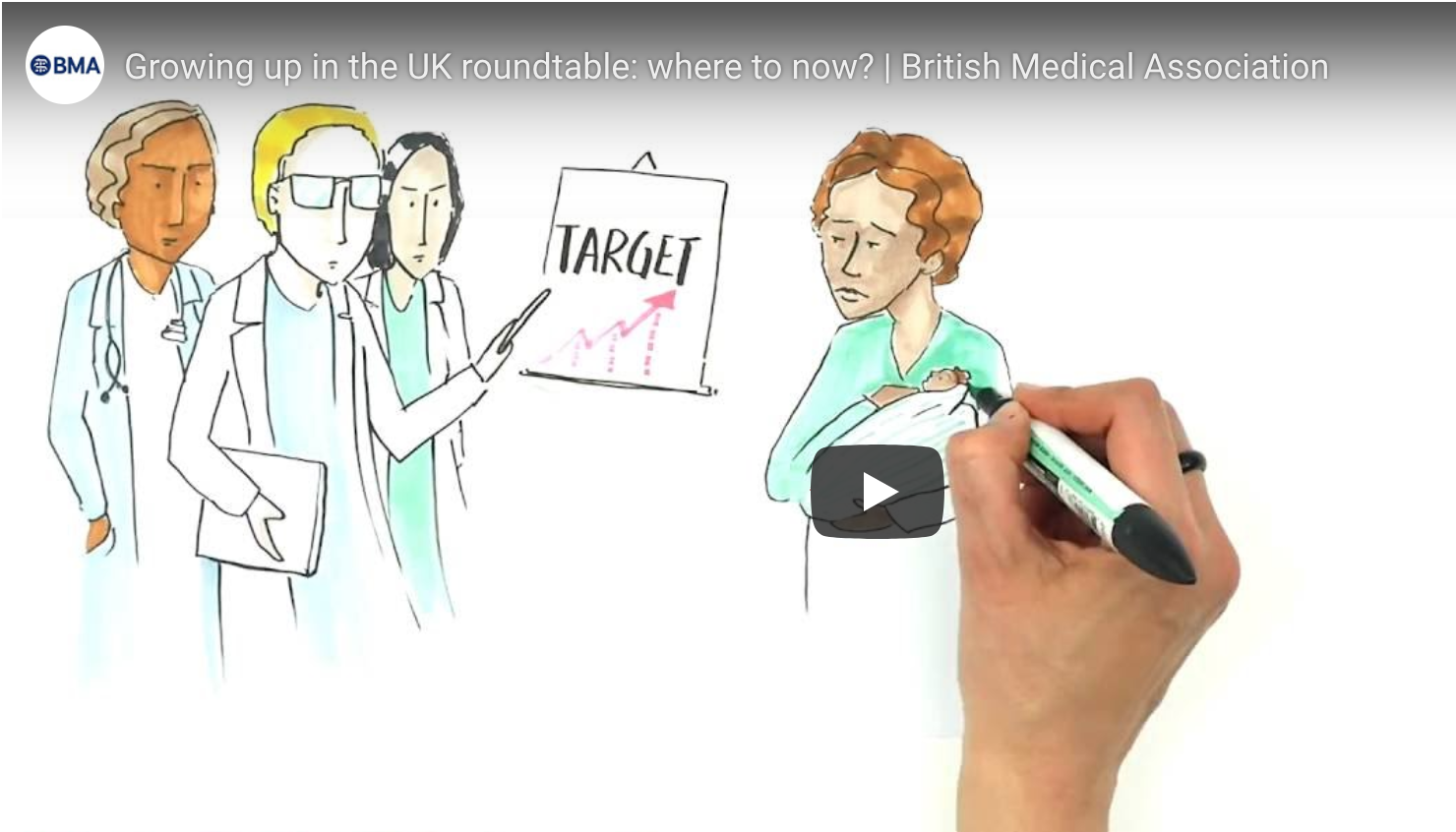In 2016 we reviewed the progress made on the findings and recommendations set out in our key Growing up in the UK report, released in 2013.
As part of the review we undertook a variety of activities to accurately capture the landscape of child health and outcomes in the UK.
Particular focus has been on the following:
- the progress of child health since 2013 overall
- Updates on child nutrition; child maltreatment; children and young people's mental health; children with disabilities; and life course development and origins of adult disease'
- the effects of austerity on children, young people and families.
Our review found that little had changed to improve the health and wellbeing of children and young people in the UK since 2013, with many of the original report’s findings still ringing true today.
A key example being that the further health and wellbeing of a child born in the UK still remains dependent on their social position, with the UK continuing to lag behind many other European countries on a range of health outcomes for children and young people without good reason.
Our recommendations
- Ring-fence funding for programmes and benefits designed to assist children, young people and families: funding for health and welfare for children – including for health (primary, secondary and community), education and social care – should be consolidated in one fund, to enable the joined-up planning and delivery of care, and prevent detrimental effects that can last for generations and may cost governments more in the long term.
- Put an end to child health inequalities: support measures to tackle poverty, reduce inequalities and prevent adversity before birth and continuing throughout the life-course of the child to adolescence.
- Fund early intervention programmes for all children: finance, develop, evaluate and implement preventative early interventions to reduce the short-term and lifelong impact of early life adversities.
- Act early to safeguard vulnerable children: meet the needs of children at risk – including children with disabilities, children with mental health conditions, and refugee and asylum seeker children - through early intervention and multi-disciplinary working between social services, education authorities, healthcare teams and others.
- Address the gap in UK child health data: conduct continuing research into the state of child health across the UK to ensure that government, and health and social care providers have suitable information to monitor the health of our children on an ongoing basis.
- Use evidence to inform policies and services: ensure that all policies are evidence-based and informed by robust data, to improve the 'match' between children's healthcare needs and the services provided to meet those needs.
- Take responsibility for children: establish accountability at Ministerial level for children's health and wellbeing that includes a framework for monitoring, reviewing and remedying processes in alignment with UK commitments to the Convention on the Rights of the Child.
- Recognise the importance of the family unit: provide children's services that are family-centered and focused on the importance of parenting, where the child and family are embraced as a unit.
- Support healthcare professionals: provide culturally and age-sensitive training programmes for healthcare teams to address the unique needs of vulnerable groups of children and young people including child refugees and asylum seekers, children with disabilities, and children with mental health conditions.
- Involve children in decision making and service design: meaningfully involve children, young people and families in design and delivery of services in order to make them more accessible and effective.
How doctors can advocate
All healthcare professionals have the potential to improve the quality of child health and support healthy, creative, educated and resilient children today, to be the productive adults of the future.
There are some practical ways doctors can promote positive outcomes for children and young people's health and wellbeing within a healthcare setting, as well as within the local community.
- Reflect our mission statement: the BMA is serious about children and young people and we strive to place them at the heart of our initiatives – Think adult, think child.
- Involve children in your decision-making: children have a relevant voice and views on medical practices (e.g. GP practices, paediatrics, patient care, end of life care etc.) Think of them within a 'life course' approach to policies and practices, from foetal development to adolescence.
- Make them matter: consider the needs of children and young people in your workplace and if you're a BMA committee member, in all relevant discussions and decisions.
- Champion child health: be a child health 'champion' for your committee, workplace or within another forum, and ask: "what does this mean for children?". Develop meaningful partnerships across agencies and sectors at local, as well as regional and national levels.
Roundtable: where to now?
As part of our review, 40 key external child health stakeholders attended the BMA Roundtable event in February 2016.
Representatives were invited from the Royal College of Paediatrics and Child Health, Institute of Child Health, Association for Young People's Health, Royal College of Nursing, NSPCC, The Children's Society, BMA committees and BMA Council.
Attendees took part in a collaborative workshop exploring the barriers to positive child health outcomes. They also identified how doctors and other health professionals could work in partnership to better meet the health needs of children and young people at their local levels.


